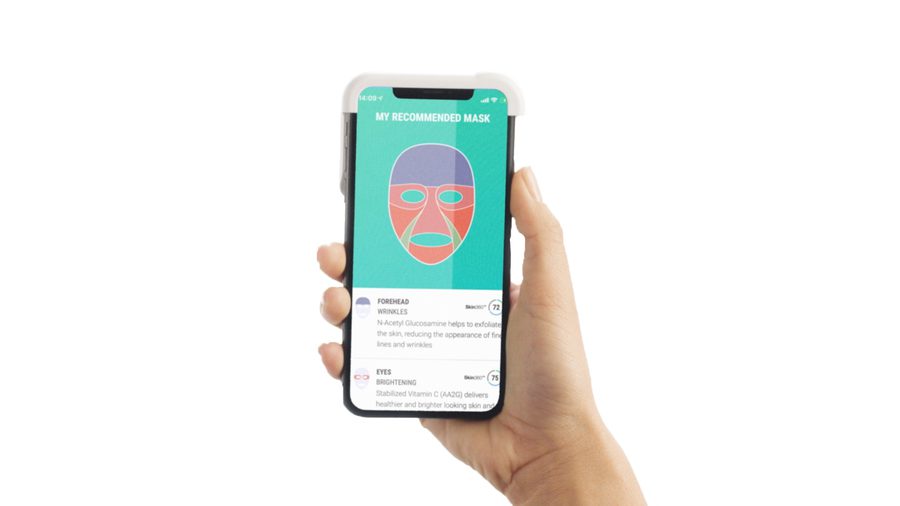The beauty sector is focussing on personalisation technology
Personalised skincare routines and custom makeup may become the new normal.


Personalised skincare routines and custom makeup may become the new normal.


For several years, we’ve been working with beauty brands all over the world on exciting new experiences. We like to keep a close eye on the ever-evolving industry, finding out about its latest innovations. The beauty sector in particular has embraced the trend for personalisation, bringing consumers personalised packaging, build-your-own eyeshadow palettes and even bespoke mascara formulas. Many customers are open to the trend; 54% of global consumers are drawn to product or service recommendations based on their lifestyle and daily activities and a US-based study found 56% of 13-34-year-old females want to be able to customize their beauty/makeup products. Now, with beauty companies investing more in technology, huge advances have been made in the field of personalised beauty and new developments may be about to disrupt the sector.
Personalisation in store
When it comes to foundation, finding the right shade can be tricky and for a long time, the task wasn’t helped by the limited colour ranges on offer. More recently, brands have expanded their lines after witnessing the success of Fenty Beauty’s 40-shade strong foundation range. Still, finding an exact shade match can be a time-consuming challenge. Lancôme has addressed this with the development of a custom foundation, Le Teint Particulier, that is matched exactly to a person’s skin tone. The service is offered at select retailers where a Lancôme consultant uses a handheld colour-matching scanner to analyse a customer’s face. The results are run through a computer to find the perfect shade, which is then mixed in front of the customer with a small machine. The foundation can also be customised in terms of how much coverage it offers and the resulting product is labelled with the customer’s name and complexion ID, meaning there’s no need to repeat the process when it comes to getting a refill.
We’ve also seen personalisation tech enhance pop-up experiences. When Clinique promoted its already customisable Clinique iD product with a New York Fashion Week pop-up, the brand used tech to tailor the products even more to each individual. Shoppers’ faces were scanned with iPads to identify their skin type and concerns. They were then surveyed on their skincare routine and what they were looking for in a product. From this information, visitors were recommended a unique Clinique iD formulation that they could sample and purchase in the shop. To finish off the personalised experience, shoppers could head to the customisation bar to cover their bottle in stickers.

New beauty technology is set to take online personalisation up a level
Personalisation sent to your door
There are a number of customisable products offered by brands online, letting customers create moisturisers or shampoos based on their needs and preferences. However, new beauty technology is set to take online personalisation up a level. Coming soon, Neutrogena’s MaskiD is a face mask service that will 3D-print custom masks to fit an individual’s face shape and target specific areas with different formulations of ingredients. Users will need to take a selfie with the MaskiD app to have their face shape mapped out. They then fill out a questionnaire on their skin to customise the mask even further with recommended treatments for six different areas. If a customer owns the Neutrogena Skin360, an innovative device with a magnifying camera that connects to phones, they can scan their face to send accurate data to the app on their current skin condition. MaskiD is yet to launch, however consumers can currently register their interest. Amorepacific’s brand IOPE has also been developing and trialling a similar service in Seoul, South Korea.

Personalisation on your bedroom vanity
Personalisation technology could become widespread in consumers’ homes in the near future. In Japan, Shiseido offers a subscription-based service, Optune, that uses a dispensing device and an app to bring customers daily personalised skincare. The app collects data from selfies to determine an individual’s skin condition, as well as analysing other personal factors such as sleeping patterns and environmental factors like the weather. Using this information, Optune produces a lotion to suit the individuals’ needs made from a custom mix of serums and moisturizers. Shiseido offers the service on a subscription basis to guarantee users access to the latest version of the device. While it’s currently only available in Japan, we could be seeing Optune and similar smart appliances offering custom beauty products in homes worldwide.
Another company focussed on personalisation tech is L’Oréal, who unveiled Perso at 2020’s Consumer Electronics Show. Developed by L’Oréal’s Technology Incubator, a division that acts like a startup within the company and also created Lancôme’s Le Teint Particulier, Perso is a smart device capable of creating custom foundations, lipsticks or serums. Like Optune, the device is connected to an app that analyses selfies, external factors, and also takes into account the individual’s skincare concerns to create personalised foundations or serums. Perso can also create custom lipstick shades, offering a spectrum of colours the user can select from or by pulling them from images. The device is likely to go on sale in 2021.

With personalisation a priority, beauty brands will soon be offering a wide range of innovative, tailored experiences in-stores and at home. Technology that once only seemed possible in science fiction will become an everyday reality, bringing customers perfectly matched makeup and effective skincare.
For more of our thoughts and insights into the beauty industry, click here to read our D&P Loves Beauty series. Or if you'd like to get in touch, email Celine Bacconi at c.bacconi@dalziel-pow.com.